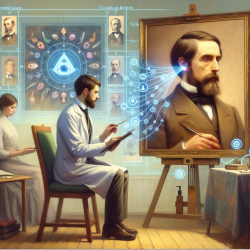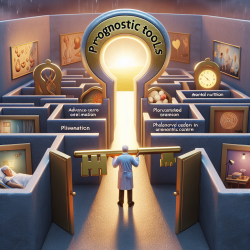Introduction
The field of speech-language pathology is ever-evolving, with new research continually enhancing our understanding and practices. One such groundbreaking study is "The Inventory of Nonordinary Experiences (INOE): Evidence of validity in the United States and India." This research provides valuable insights into how cultural contexts shape individuals' experiences and perceptions, offering a robust framework for cross-cultural comparisons. This blog explores how practitioners can leverage these findings to improve their skills and outcomes for children.
Understanding the INOE
The INOE is a survey tool designed to capture and compare nonordinary experiences across different cultural contexts. It separates phenomenological features of experiences from their appraisals, allowing for a nuanced understanding of how these experiences are perceived in different cultures. This separation is crucial as it helps identify potentially universal (etic) and culture-specific (emic) aspects of lived experiences.
Key Findings and Implications for Practice
The research highlights several key findings that can inform practice:
- Cross-Cultural Validity: The study demonstrates that certain experiences are universally recognized, while others are interpreted differently across cultures. This understanding can help practitioners tailor their approaches to accommodate cultural differences, ensuring more effective communication and intervention strategies.
- Phenomenological Features: By focusing on the phenomenological aspects of experiences, practitioners can better understand the underlying processes that shape children's perceptions and behaviors. This knowledge can inform the development of targeted interventions that address specific needs.
- Appraisal Processes: Understanding how experiences are appraised within cultural contexts can help practitioners anticipate potential challenges and opportunities in therapy. This insight can guide the creation of culturally responsive therapeutic environments that foster positive outcomes.
Encouraging Further Research
While the INOE provides a robust framework for understanding nonordinary experiences, it also highlights the need for further research. Practitioners are encouraged to explore how these findings can be applied in different contexts and with diverse populations. By contributing to this growing body of knowledge, practitioners can help refine and expand the INOE, enhancing its applicability and impact.
Conclusion
The INOE offers a valuable tool for speech-language pathologists seeking to enhance their practice through a deeper understanding of cultural influences on experiences. By integrating these insights into their work, practitioners can create more effective, culturally responsive interventions that improve outcomes for children. To delve deeper into the original research, please follow this link: The Inventory of Nonordinary Experiences (INOE): Evidence of validity in the United States and India.










